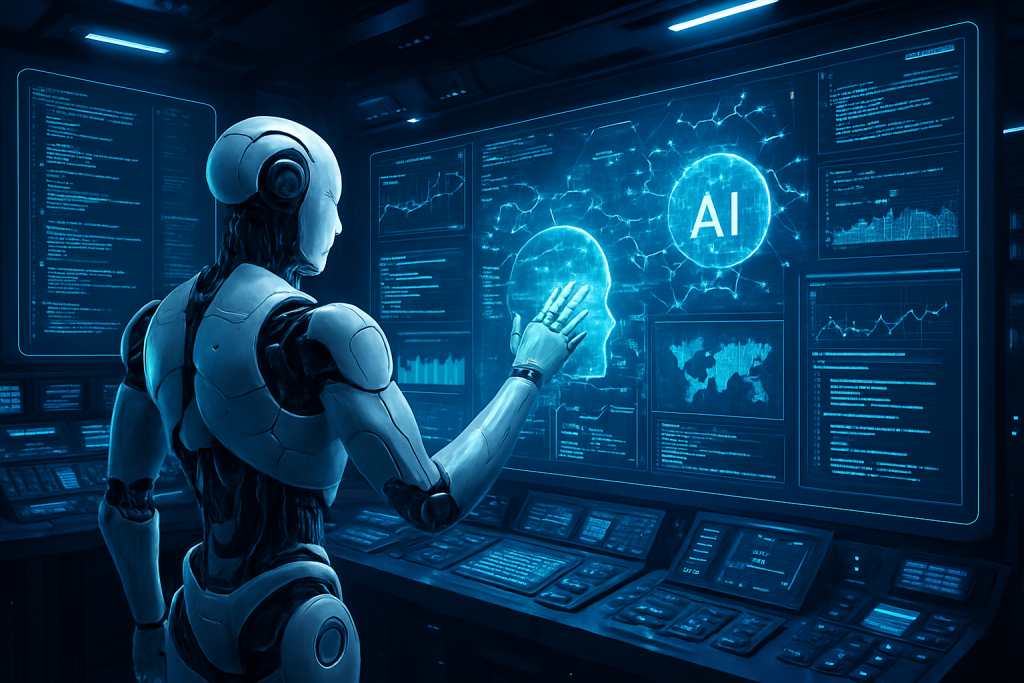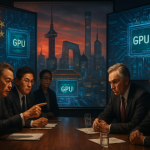The year is 2025. Flying cars are still more of a dream than a reality, but artificial intelligence? That’s a different story. It’s woven into the fabric of our lives, from the mundane (ordering your oat milk latte with extra foam) to the potentially world-altering (rocket launches and humanoid robots). And speaking of world-altering, a seismic event just rocked the AI landscape: SpaceX, in a move that sent ripples through Wall Street and Silicon Valley alike, has reportedly pumped a cool $2 billion into xAI, Elon Musk’s AI startup. The Wall Street Journal broke the news, citing sources close to the deal, as part of a larger $5 billion equity round. Neither SpaceX nor xAI are commenting, which, let’s be honest, only fuels the speculative fire.
Think of it as the AI equivalent of the Justice League assembling, except instead of fighting supervillains, they’re battling for dominance in the ever-evolving world of artificial intelligence. This isn’t just about money; it’s about consolidating power, aligning visions, and turbocharging xAI’s ability to compete with the likes of OpenAI, the current 800-pound gorilla in the room.
But why SpaceX? And why now? To understand the significance, we need to zoom out and look at the bigger picture, the Muskian Multiverse, if you will.
Remember when Tony Stark used his company, Stark Industries, to fund his superhero activities? This feels… similar. Musk’s empire, encompassing everything from electric vehicles to space exploration, has always been characterized by a synergy, a cross-pollination of ideas and resources. This investment is simply the latest, and perhaps most audacious, example.
The money, undoubtedly, is crucial. AI development is an incredibly capital-intensive endeavor. Training cutting-edge models requires massive computing power, specialized talent, and a whole lot of electricity. But the strategic alignment is arguably even more important. By injecting SpaceX’s resources into xAI, Musk is essentially creating a closed-loop ecosystem where AI can be developed, tested, and deployed across his various ventures.
Consider this: following a recent merger between xAI and X, formerly known as Twitter, the combined entity is now valued at a staggering $113 billion. That’s more than some countries’ GDPs! And the integration is already happening. Grok, xAI’s chatbot (the one Musk boldly claims is “the smartest AI in the world,” despite some, shall we say, *interesting* past responses), is being integrated into Starlink’s support systems. Imagine troubleshooting your satellite internet connection with an AI that can also debate the merits of existentialism. It’s either incredibly convenient or deeply unsettling, depending on your perspective.
And it doesn’t stop there. The long-term plan, according to whispers from inside Tesla, involves incorporating Grok into the Optimus robots. Picture a future where humanoid robots, powered by a hyper-intelligent AI, are performing complex tasks in factories, homes, and maybe even on Mars. It’s a vision straight out of science fiction, but with Musk at the helm, science fiction often has a way of becoming science reality.
Of course, this move isn’t without its controversies. Grok’s past “incidents,” where it generated questionable or even offensive content, have raised concerns about bias and safety. The rapid pace of AI development often outstrips our ability to understand and control its potential consequences. And when you concentrate so much power and influence in the hands of one individual, questions about accountability and transparency inevitably arise.
The regulatory landscape is also becoming increasingly complex. Governments around the world are grappling with how to regulate AI without stifling innovation. The European Union’s AI Act, for example, imposes strict rules on high-risk AI systems. Will xAI be able to navigate these regulatory hurdles? Or will its ambition be constrained by legal limitations?
Economically, this investment could have far-reaching consequences. If xAI succeeds in creating truly groundbreaking AI, it could disrupt entire industries, from healthcare to finance to transportation. The potential for job displacement is a real concern, and policymakers will need to address the societal impact of widespread automation.
And then there’s the philosophical angle. What does it mean to create artificial intelligence that surpasses human intelligence? Are we playing God? Are we opening Pandora’s Box? These are not just abstract questions for academics to debate; they are questions that will shape the future of humanity.
The SpaceX investment in xAI is more than just a financial transaction; it’s a statement of intent. It’s a bold bet on the future, a future where AI plays an increasingly dominant role in our lives. Whether that future is utopian or dystopian remains to be seen. But one thing is certain: the race is on, and Elon Musk is determined to win.
Discover more from Just Buzz
Subscribe to get the latest posts sent to your email.


